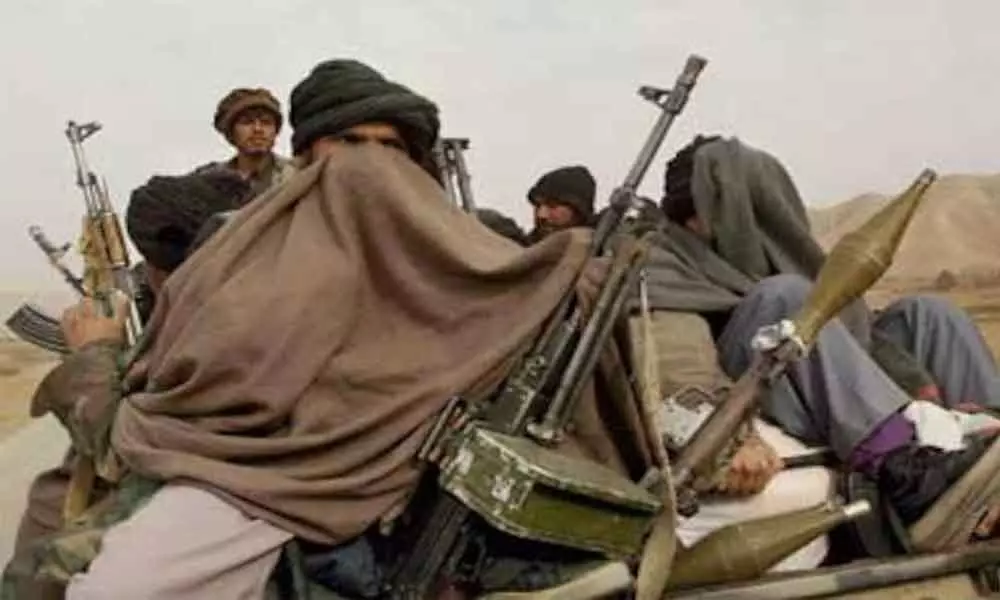The resurgent Taliban

Representational Image
The world it may seem is bound to sit at the same table with Taliban, once they embrace political identity and become part of the political establishment, and this may mark a peaceful future for Afghanistan
The world it may seem is bound to sit at the same table with Taliban, once they embrace political identity and become part of the political establishment, and this may mark a peaceful future for Afghanistan
In a speech on July 8, US President Joe Biden announced that the American military would complete its withdrawal from Afghanistan by August 31, nearly two weeks before his earlier deadline of September 11.
In his latest speech, Biden strongly defended his decision to pull US military forces out of Afghanistan, saying the Afghan people must decide their own future, rather than sacrificing another generation of Americans in an unwinnable war. Biden called on countries in the region to help bring about an elusive political settlement between the warring parties. He said the Afghan government should seek a deal with the Taliban to allow them to coexist peacefully. And this is what has proved to be the red herring amongst the neighbouring and regional countries. Most of the countries have reacted in a guarded manner over the advances of the Taliban forces in Afghanistan since May, who now controls 162 districts in Afghanistan.
In reality, the chaotic and unpredictable conditions in Afghanistan will have a significant impact on the regional geo-politics. For starters, the Iranians have started fishing in the troubled waters by inviting the Taliban leadership for talks in Tehran.
Iranian Initiative
The Taliban-Iranian talks began in January this year, as part of Iranian efforts to broker peace between the Afghan government and other factions. The latest round of intra-Afghan talks began on July 7 by a speech from Iranian Foreign Minister Mohammad Javad Zarif, who warned that the continuation of conflicts between the government and the Taliban will have "unfavourable" consequences for Afghanistan, noting that a return to the intra-Afghan negotiations is the "best solution".
Pakistan's Alarm
Pakistan's Prime Minister Imran Khan in an op-ed in The Washington Post on June 9 sounded hurt by the accusations of the government in Kabul naming Islamabad as inciting violence in the country. He further wrote that he would like Pakistan to be "a partner for peace in Afghanistan", which may have ideated from the Indian outreach to the Taliban.
India's Outreach
Though Indian policy makers will also be worried about the security threat from the pro-Taliban Pakistani outfits, yet they may have weighed the advantage of engaging with the Taliban and also considered that in future the Taliban might be able to assert pressure on forces inimical to India. India has always called for "an Afghan-led, Afghan-owned and Afghan-controlled process", and as such, the strategic move to engage with Taliban broadly demonstrates a regional security imperative for India and its efforts to minimise Islamabad's influence.
American View
The Americans have always wondered what fuels the Taliban to fight against a huge military machine despite the odds. Though in reality this has not led to any effort to try to understand the Taliban's psyche and their commitment. The very presence of Americans in Afghanistan trod on a sense of Afghan identity that incorporated national pride, a long history of fighting outsiders and a religious commitment to defend the homeland. The Taliban's ability to link their cause to the very meaning of being Afghan was a crucial factor in America's defeat. Now, with the Taliban overrunning districts in the north, they will likely press their attack, further emboldened by US departure over the next few weeks. Afghan soldiers and police will suffer from the same morale problems that have plagued them for two decades.
The world it may seem is bound to sit at the same table with Taliban, once they embrace political identity and become part of the political establishment, and this may mark a peaceful future for Afghanistan.








